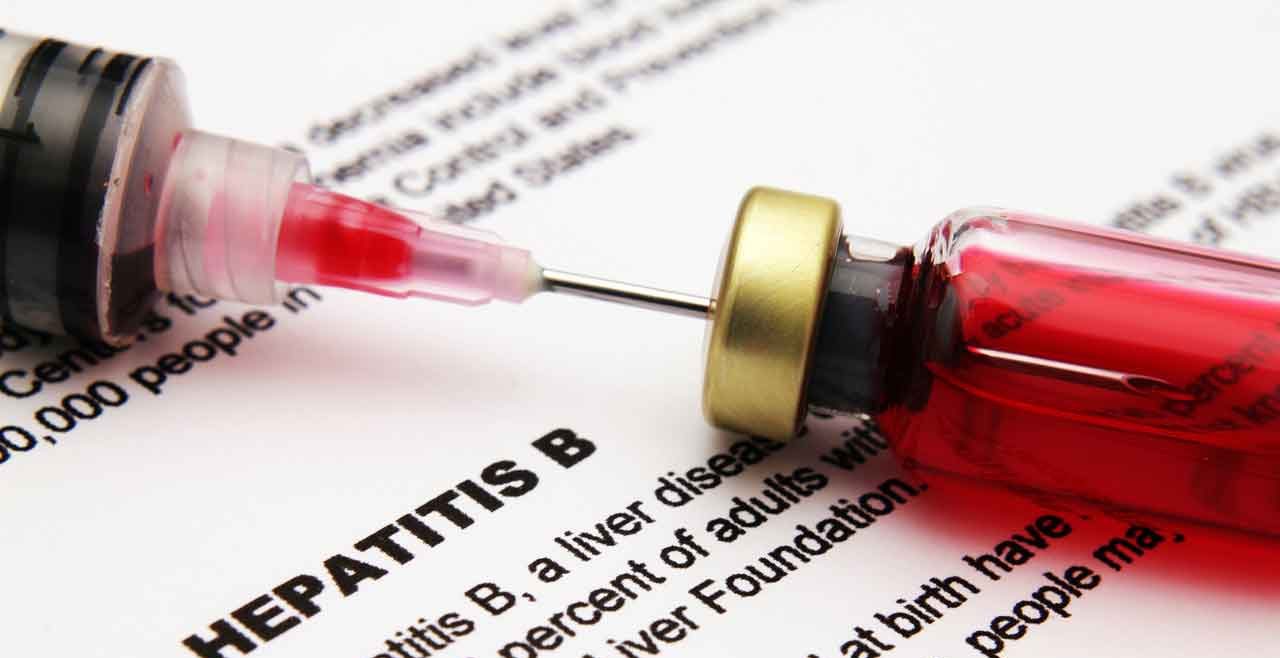What Are the Symptoms of Hepatitis B?

What is hepatitis B, and what are the symptoms? Most of the time there are no obvious signs, but in general you may feel like you have the flu during a flare up.
Hepatitis B is generally invisible. The virus worms into the nucleus of your cells, where, over the years, it can damage your liver. Sometimes the symptoms of hepatis B flare up in what is called an acute rather than a chronic case.
A chronic infection, even without symptoms, will appear on a blood test. When symptoms of hepatitis B occur, you might feel like you have the flu. You could have a fever, pain in your joints, feel nauseous or tired, or you could vomit.
But, unlike with a flu, hepatitis B flare-up symptoms can last for weeks or months.
Other symptoms of hepatitis B include dark urine, clay-like feces, or jaundice, a yellow tinge in your skin and eyes.
YOU MIGHT ALSO LIKE: What Is Hepatitis B?
How do you get hepatitis B?
Around the world, unvaccinated infants are the most likely to have new infections, generally from the blood of their mother. The virus enters the blood or semen of an infected person. If another person comes into contact with that fluid, and passes through the skin, the virus can travel into their bloodstream.
If a man doesn’t use a condom and ejects semen into another person, any tear in the recipient’s skin becomes a path of entry. A woman might have a slight tear in her vagina, and tears in the anus are common.
Sharing a needle, syringe, or any other method of getting a drug into your blood is highly dangerous. In that case, you are making a break in your skin. A tattoo parlor that doesn’t use new needles could put you at risk, since your skin will be punctured.
Saliva, mucus, and breast milk aren’t known to harbor hepatitis B. That means that you won’t get hepatitis B from sharing food or water with an infected person. Hugging, kissing, and holding hands are not dangerous. Coughing and sneezing don’t spread hepatitis B, nor do insect bites.
Hepatitis B prevention
New cases of hepatitis B in the United States fell by 82 percent after the country began routinely vaccinating infants, a recommendation first made in 1991. The vaccination is successful in 90 percent of recipients. About 10 percent of people don’t respond completely to the vaccination, however, or its protection may have faded.
Some people have advocated booster shots, since the vaccine protection can diminish over time. The jury is still out on whether booster recommendations should become standard, according to the Centers for Disease Control and Prevention.
Pregnant women should be screened before giving birth. All infants should be vaccinated. If the mother is infected, the baby should be vaccinated within 12 hours.
Get tested if you think you may have been infected. People who should be tested immediately include:
- Anyone who has had sex with an infected person
- Anyone who lives with an infected person
- Anyone who shares needles
- Healthcare workers who might be exposed to infected people and needles
- Anyone receiving blood transfusions or chemotherapy
People born in Africa, Asia, India, Pakistan, or Eastern Europe have a higher risk.
Whenever you suspect a new infection, even if you’ve had a shot, talk to a doctor. Your doctor is likely to give you an injection of hepatitis B immune globulin within 12 hours of coming in contact with the virus. That may protect you.
If you (or your child) has inflammatory bowel disease (IBD), your doctor may prescribe the drug infliximab, which can sometimes cause a flare-up of symptoms of hepatitis B. Ask your doctor for a screen test and consider a booster shot if you need one.
Hepatitis B treatment
If you have flu-like or other symptoms of hepatitis B, you may not need treatment. You’ll just need to rest as you would with any infection, allowing your body to fight it.
People with a chronic hepatitis B infection may need treatment to protect their liver and help prevent them from spreading the disease. Several antiviral medications — including lamivudine (Epivir), adefovir (Hepsera), telbivudine (Tyzeka) and entecavir (Baraclude) — may help.
Young women who want to get pregnant within a few years might consider an injection of interferon alfa-2b. The possible side effects include depression, shortness of breath, and a tight chest.
People with long-term chronic infections may end up with so much damage they need a new liver, usually from someone who has died. According to one study, fewer people are dying while waiting for a transplant, most likely because antiviral medications slow the progress of the disease.
Updated:
June 27, 2023
Reviewed By:
Christopher Nystuen, MD, MBA